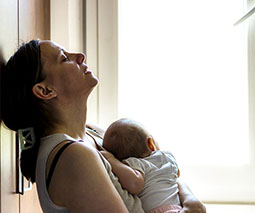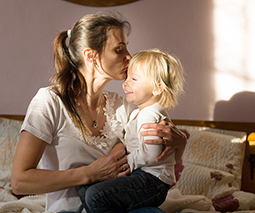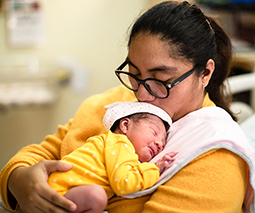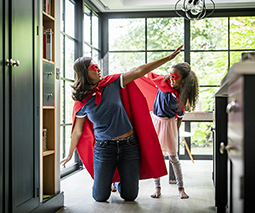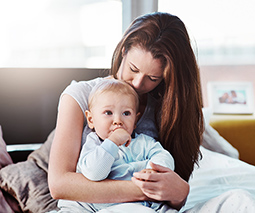My PND story: “I was scared I’d screw up my son.”
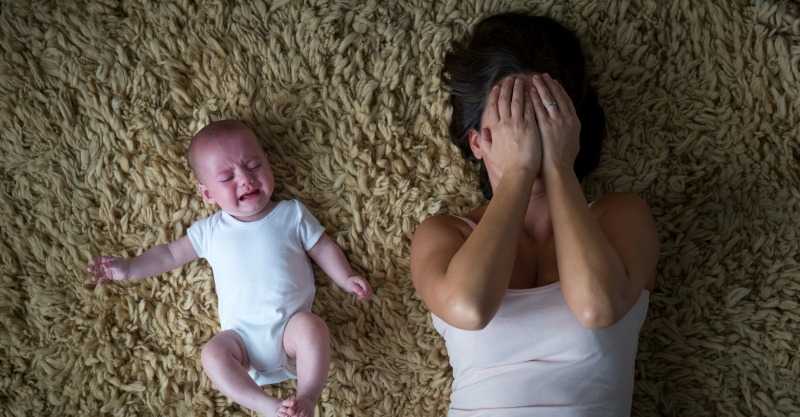
One of the most heartbreaking aspects of postnatal depression and anxiety is how the fear of judgement can prevent parents from being honest about what they’re feeling. This is a valid fear, after all, people who don’t understand what PNDA is can be dismissive, harsh or expect you to ‘just toughen up’.
But it’s important that mums and dads who are experiencing postnatal depression and anxiety know they have a safe place to speak about even the most awful things they felt during their period of darkness. They don’t need our judgement or opinions. They just need to be heard.
This week, during PNDA awareness week (13-19 Nov) one very brave mother has offered to share honestly about her recent experience of postnatal depression and anxiety.
This is 25-year-old Laura’s story
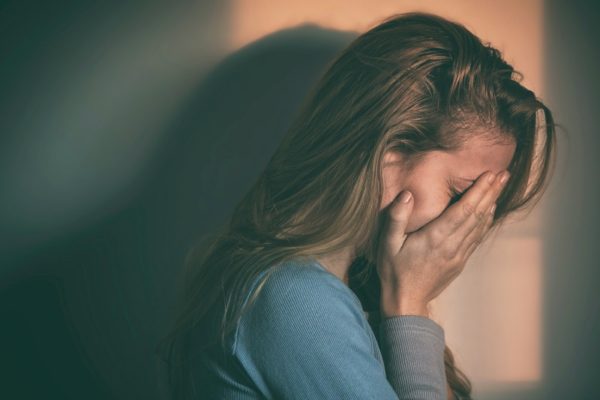
When did you experience postnatal depression and anxiety?
I think it actually started during my pregnancy, but I was diagnosed with postnatal depression and anxiety when my son was 9 months old. I realise now I had been struggling with it undiagnosed at least since the birth of my son. After I was diagnosed, it got much worse, and then I was able to work through it and recover over the next few months. It took about 3.5 months from when I was diagnosed to when I finally felt like the dark, all-consuming cloud had lifted.
What made you realise you had PNDA?
I had a cuppa with a friend, who texted me afterwards saying she thought I had PND and should see a doctor. I was surprised (and probably in a state of denial) as I just thought I was extremely anxious.
I went to the doctor and she confirmed it in a long consultation with lots of tears and an Edinburgh depression test. After that, many of my close family and friends said they had noticed something wasn’t right but hadn’t known how to address it.
What were the symptoms of PNDA like for you?
I had been struggling with negative thoughts, anxiety and feeling extremely overwhelmed since my son was born. On reflection, I can even see some of my behaviours starting to change during my pregnancy.
I thought it was normal for mothers to feel overwhelmed and anxious but hadn’t realised how damaging my negative thought processes were (how hard I was on myself, how hopeless I felt, how alone and exhausted I was), until other people told me it wasn’t normal to think like that.
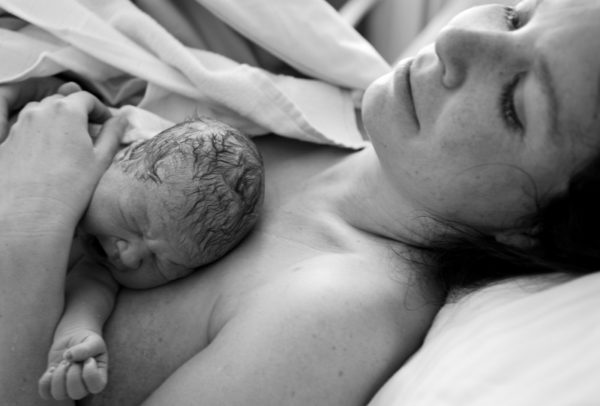
How did your birth impact you emotionally and mentally?
I had experienced quite a traumatic birth as I was diagnosed with pre-eclampsia at 38 weeks gestation. I was induced at my appointment on the spot, and didn’t even get to go home and pack my hospital bag.
I had so much excess fluid that I had put on 30kg in my pregnancy, and due to the high blood pressure and fluid on my brain (symptoms of pre-eclampsia), I was incredibly confused during this time which led to a lot of resentment and shame post-birth. This was a major factor for me in developing post-natal depression.
Did having PNDA affect you in more permanent ways too?
When I was depressed, it fundamentally changed who I was and what I believed. My thoughts and feelings were distorted in such a way that the damage remained even after I had recovered mentally. For me, some relationships completely changed like someone had flicked a switch and I still have no idea why. It’s taken me more than eight months of being ‘well’ to finally begin to articulate why that happened and start working to restore those relationships.
Anxiety is also something I still struggle with but I am learning how to control it and build my confidence again.
I also feel a lot of guilt and shame about that period of my life and the person I was. I worry how it has affected my son in his development and how I hurt people during this time.

How would you explain postnatal depression to someone who hasn’t experienced it?
Depression is like a disease that creeps into your mind and takes over the control centre. It distorts your thoughts and your belief system, laughing and mocking everything you do and turns you into a different person.
I didn’t even recognise myself. For me, it fundamentally changed a lot of my truths that had been instilled growing up. I began to think things like “I am worthless”, “I am a terrible mother”, “I am a failure” and I started to believe them.
The thoughts infected me and started to darken; I began to think; “my son/husband would be better off without me”, that “life wasn’t worth living” and it was “a hopeless situation that I would never get out of”. I felt trapped, I felt so utterly depressed and so worthless.
What was your biggest fear?
My biggest fear was that I would never get out of it and that my son would be screwed up for life. I also feared other people judging me and thinking I was a failure of a mother (especially close family and friends).

How is PNDA sometimes misunderstood as simply a feeling that you ‘get over’?
I used to say to my husband, “If I had broken both my legs in a car accident, no one would expect me to get out of bed to cook, clean and look after my baby all day”. Having depression is just as disabling, only more so, because it’s all in your head and you can’t get away from it. It’s physical, mental and spiritual … all negative, all consuming.
I struggled in every social setting. When I talked to people, I couldn’t make eye contact for fear they would see I was a failure and laugh at me. I remember going down to the post office to pick up a parcel, and running out in a state of tears and having an anxiety attack on the way home because the shop assistant had been a bit rude and I couldn’t handle it.
I was so ashamed at what I had become; a snivelling, weepy, anxious mess. I had always been confident in myself, assertive in my decisions and comfortable socially. What had I become?
What support services did you find helpful during your treatment?
Within a week of being diagnosed, I had my first visit with a psychologist, but I didn’t feel comfortable with her style. A friend recommended a different counsellor and we got along really well from the start. Seeing a professional that I really ‘gelled’ with was crucial in my recovery.
You need to feel comfortable with them so you can be completely honest and be willing to dig into the yucky stuff to find closure and recover. I think this treatment was the most effective in my recovery.
We also went to Tresillian and got some wonderful support there for both my husband and I. That was the first time I realised I wasn’t alone, and understood how sick I actually was.
Did you take anti-depressants?
My doctor was very pushy in prescribing anti-depressants, and while I think they can be helpful in certain circumstances, I had done a lot of reading on alternative ways to improve your mental health (and I was also still breastfeeding at the time), so I refused them whilst I pursued other forms of treatment.
Going on a paleo diet to improve my gut health, starting to exercise and get out of the house, seeking help around the house, child-minding by relatives and those precious counsellor sessions all made a huge difference in my recovery.
My husband also took sick leave and worked part-time for 6 weeks to help support me, which was incredible.

How did having PNDA affect your close relationships?
Some of my relationships changed suddenly during the depression, which was incredibly painful and difficult as I didn’t know why it had happened and I hurt lots of people in the process. I also pushed my close family away as I was ashamed and didn’t want them to see me as the weak, depressed person I had become.
I stopped seeing many of my friends as I struggled with the fact they seemed to have it all together and I didn’t. It was a very lonely and isolating time for me.
There was one small light in the darkness, which I thank God for, and that was my son. Even whilst feeling so numb and low, I still managed to find some joy in my baby, which I think kept me going. I loved him fiercely and the sheer need for me to look after him helped me to look outside myself and have a purpose.
How was your husband affected by your PNDA? Was he supported?
My husband is an incredible man. He has always been such an active husband and father helping around the house. When I was depressed, he basically carried the burden of our whole family. All my responsibilities as well as his own, whilst working full time and commuting over four hours a day.
He became quite anxious as he was very worried about our son and me. I used to call him frequently at work during the day when I was having panic attacks or when I wasn’t coping. It must have made him feel so helpless and distressed.
When we went to Tresillian, he did the Edinburgh depression scale for men and the results showed he wasn’t coping. He was offered psychological help, taught coping skills to manage anxiety, offered educational resources whilst we were there and was encouraged to see a counsellor when we got home, which he did.

What would you tell other mums or dads currently battling postnatal depression and anxiety?
It sucks. It feels so hopeless. You may feel trapped and so low, you may not want to keep living. Please don’t give up. You are not alone.
There are so many other mums who feel these things; worthless, hopeless, a failure, a terrible mother and wife. BUT here is hope … just cling to whatever ray of hope you can find, whether it be your children (though it may not be) or something that brings you the smallest feeling of joy (music, the beach, a book, space away from people, faith).
Try and find those truths that you used to know … what the people who love, you say of you.
Try and see your strengths; that you got out of bed to feed your baby (how hard is it sometimes!), the fact that you haven’t given up, that you are doing the best you can whilst being so unwell.
Seek help, don’t put it off for a second. Find someone who listens, really listens and validates your feelings. For me, that was the start of my recovery. Knowing I was being heard.
I am just amazed at how far I’ve come and the person I am now. I am able to cope so much better now. We have another baby on the way and for the first time since my first son was born, I feel like I can actually do this!
If you think you might have postnatal depression or anxiety and feel like you’re not being heard, please ask for help. Call Lifeline or Beyond Blue.

